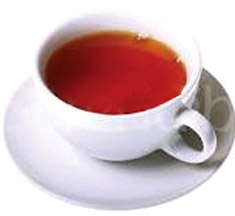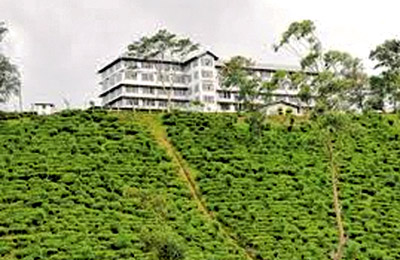The role of standardization with special reference to the tea
industry
Deepika Munaweera -Senior Deputy Director Sri Lanka
Standards Institution
 The present day market is a consumer market. It is unlike that of
past years, when the products were manufactured by limited manufacturers
having their monopoly, the consumer had to buy or accept whatever was
available and above all at dictated terms and prices. Due to economic
liberalization, the scenario has all together changed. More and more
organizations, in particular the multinational organizations, have come
into the market, providing better options for the customers and better
value for their money. This has increased the competition in the market.
This transformation calls for better quality at competitive prices. To
achieve this, manufacturing units have to reconsider their corporate
policies placing a major thrust on areas like quality, safety,
reliability, cost effectiveness, etc. To meet these factors
standardization of the product/process is a most important prerequisite. The present day market is a consumer market. It is unlike that of
past years, when the products were manufactured by limited manufacturers
having their monopoly, the consumer had to buy or accept whatever was
available and above all at dictated terms and prices. Due to economic
liberalization, the scenario has all together changed. More and more
organizations, in particular the multinational organizations, have come
into the market, providing better options for the customers and better
value for their money. This has increased the competition in the market.
This transformation calls for better quality at competitive prices. To
achieve this, manufacturing units have to reconsider their corporate
policies placing a major thrust on areas like quality, safety,
reliability, cost effectiveness, etc. To meet these factors
standardization of the product/process is a most important prerequisite.
Standardization
Standardization is a scientific activity which compels formulation
and application of standards for the benefits of all concerned. A well
known fact is that Standardization helps in quality, safety,
productivity, technology upgradation and overall improvement of quality
of the end product. The important benefit of standardization is
improvement of the suitability of products and services for intended
purposes. In other words, the most important tool for making available
the right quality of material is standardization. Standardization and
quality depends on each other in several ways.
In fact they are the two sides of the same coin while quality has to
be measured against standard, standards can be established effectively
only with the experience of manufacturing process in building quality
into the product. The outcome of standardization effort is a
specification or standard. Therefore, standardization and quality
control are effective management tools designed for progress. The
different levels of standardization are international, regional,
national, association, company and individual. In the course of the last
10 years, there has been a sudden increase in the number of standards
and technical regulations. The activity of standardization has recorded
a very high growth rate. Today, standardization is linked to the
technological and economic growth of a country.
Standards
Standards are useful to individual and business organizations of all
types, to governments and other regulatory bodies, to trade the
officials, to conformity assessment professionals, to suppliers and
customers of products and services in both public and private sectors,
and ultimately to people in general in their role as consumers and end
users. Standards take care of prevailing practices by stabilizing them
at current attainable and acceptable levels and serves as a basis for
growth. It defines the optimum level of quality in the interest of
overall economy of resource and management.
The Role of SLSI
Sri Lanka Standards Institution (SLSI) being the National Standards
body of Sri Lanka is playing a key role in the development of Sri Lanka
Standards at national level. For formulating standards, SLSI functions
through a structure of technical divisions and relevant Sectoral/Working
Group Committees comprising of representatives of various interests such
as consumers, regulatory and other government bodies, industry,
scientists, technologists, testing organizations and individual experts.
Keeping in view the importance of Tea Industry, SLSI has published a
number of standards in the area of tea. These standards are in the form
of glossary of terms, Code of practice, Specifications and Test Methods.
The National Scenario
 Tea is one of the major exports and the main agricultural export
product in Sri Lanka. At the national level, the National Technical
Advisory Committee on Tea of SLSI is responsible for the standardization
activities in the field of tea products. This Committee is constituted
of concerned Govt. Departments, Competent Authority, Industry, Trade and
Research organizations. The scope of this Committee is to formulate and
update Sri Lanka Standards for terminology, methods of testing and
sampling, product specifications, code of practices, etc. on tea. Tea is one of the major exports and the main agricultural export
product in Sri Lanka. At the national level, the National Technical
Advisory Committee on Tea of SLSI is responsible for the standardization
activities in the field of tea products. This Committee is constituted
of concerned Govt. Departments, Competent Authority, Industry, Trade and
Research organizations. The scope of this Committee is to formulate and
update Sri Lanka Standards for terminology, methods of testing and
sampling, product specifications, code of practices, etc. on tea.
The International Scenario
International Organization for Standardization (ISO) is the premier
organization engaged in formulation and propagation of the standards
globally. SLSI is a founder member of ISO and actively participates in
the development of standards at ISO level. ISO/TC 34/SC 8 - TEA is the
technical committee engaged in the standardization activity in the area
of tea at international level. SLSI is one of the 16 Participating "P" -
members on this technical committee, which has 25 Observing 'O' members.
British Standards Institution (BSI) functions as its Secretariat.
This sub committee (SC8) meets once in two years (biannually) in
different parts of the world and this year to be held in Sri Lanka. Sri
Lanka participates actively in all the activities of SC8. In fact,
ISO/TC 34/SC 8 meetings provides an excellent opportunity for the tea
industry in the country to understand the various standards being
formulated fulfilling the international market requirements.
Participating in various stages of the formulation of international
standards, the interests of the country can best be reflected in
international standards. It is also the continuous endeavour of SLSI to
harmonize national standards with international standards so as to have
uniformity in tea industry.
This facilitates international trade. It is evident that considerable
standardization work has been done in the field of the tea industry at
national as well as international level. In SLSI, apart from covering
new areas, the National Technical Committee on Tea is constantly,
engaged in a regular review of the existing standards, so that they are
constantly, updated keeping pace with the latest technological
developments in the field (such as value added products). This makes the
national tea standards a dynamic entity which is always ready to meet
the new technological frontiers and assimilate the new emerging trends
so that the practices and processes emerging out of new developments are
successfully adopted in our country. Continuous review and harmonization
with International Standards, incorporation of new technologies in
national tea standards make them a vital link in the process of
development in the industry.
SAARC Regional Standards
South Asian Association for Regional Cooperation (SAARC) was formally
launched in 1985. The countries of South Asia have common values rooted
in their social, ethnic, cultural and historical traditions. However,
the South Asian Region is a huge market and has substantial human and
natural resources. The intra-regional trade in SAARC is about four
percent of its total international trade. There is certainly greater
potential to increase the share of intra-regional trade. The South Asian
region needs to adopt a strategy of regional economic integration so
that the region's full potential can be harnessed and people benefit
from the development of the region.
To promote intra-SAARC trade through reduction of technical barriers
to trade, a sub-group on Standards and Quality working under the
auspices of the SAARC Committee on Economic Cooperation has decided to
set up the SAARC Standards Coordination Board (SSCB) comprising a member
from each of the National Standards body of the Member States, as a
precursor to the setting up of the SAARC Regional Standards Body. Later
SAARC Standards Coordination Board noted that SAARC was the only region
which did not have any Regional Standards Organization and recommended
the setting up of the SAARC Regional Standards Body, to be formally
named as the South Asian Regional Standards Organization (SARSO). SARSO
is to be located in Dhaka, Bangladesh.
 There are several objectives and functions of SARSO once established
and one of these is to promote and undertake harmonization of national
standards of the SAARC Member States with a view to removing the
technical barriers to trade and facilitate the flow of goods and
services in the region. To start harmonization activity, SSCB has
identified a few products for harmonization in the region and one such
product is Black Tea. There are several objectives and functions of SARSO once established
and one of these is to promote and undertake harmonization of national
standards of the SAARC Member States with a view to removing the
technical barriers to trade and facilitate the flow of goods and
services in the region. To start harmonization activity, SSCB has
identified a few products for harmonization in the region and one such
product is Black Tea.
Harmonized SAARC standards would provide a barrier free intra-SAARC
trade environment. By taking a unified stand at the international
standards setting organizations, SAARC nations can project their views
emphatically in the development of those International Standards that
are related to the goods and services being traded or having potential
for trade in the Region. As Sri Lanka is a member state of SAARC, SLSI,
representing Sri Lanka, is actively involved in these standardization
activities.
Conclusion
It can thus be concluded that the need for standardization and
quality control in the field of tea industry is much more intense and
necessary for the survival, growth and competitiveness in the world
market. SLSI is playing a predominant role by placing the tea industry
and trade including exports on a sound scientific basis by harmonizing
national standards with regional and international standards. Therefore
the role of standards can thus, not be undermined by any circumstances
as they impact the economic growth of the country. This renewed status
of standards is here to stray.
|



